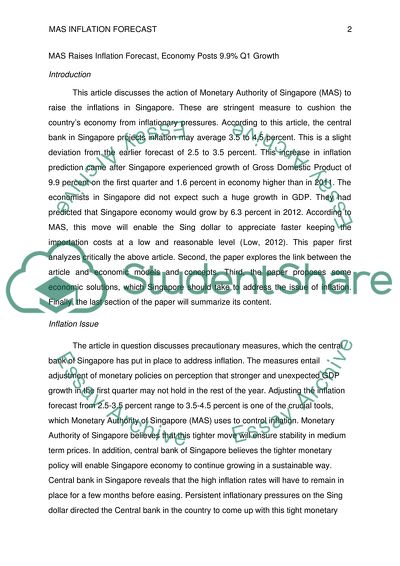MAS raises inflation forecast, economy posts 9.9% Q1 growth Essay. https://studentshare.org/macro-microeconomics/1776153-mas-raises-inflation-forecast-economy-posts-99-q1-growth
MAS Raises Inflation Forecast, Economy Posts 9.9% Q1 Growth Essay. https://studentshare.org/macro-microeconomics/1776153-mas-raises-inflation-forecast-economy-posts-99-q1-growth.


